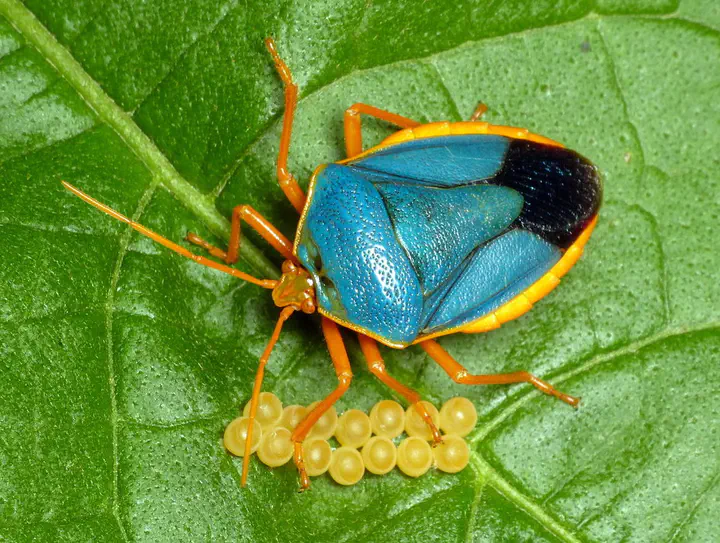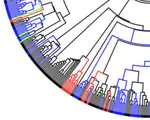Evolution of parental care
 Shield bug guarding eggs in the Ecuadorian rainforest. Credit:Andreas Kay/Flickr (CC-BY-NC-SA 2.0)
Shield bug guarding eggs in the Ecuadorian rainforest. Credit:Andreas Kay/Flickr (CC-BY-NC-SA 2.0)Some insects, like dung beetles, supply offspring with food. We have found that these species show highly unusual, mammal-or-bird-like life histories. Parental care may therefore explain the unusual life history patterns we observe in birds and mammals. Most evolutionary origins of insect parental care involve female parents, but repeated origins of male parental care occur predictably from a state of no care. The benefits of protective care are higher in the tropics, suggesting they evolved in response to predation pressure. In male-caring assassin bugs (Rhinocoris tristis) males benefit by caring for eggs, because females are highly abundant, available and show preference for caring males. Excitingly, this leads to a novel sexual conflict: due to female choice, males benefit by caring conspicuously, but females prefer hiding eggs from parasites.
